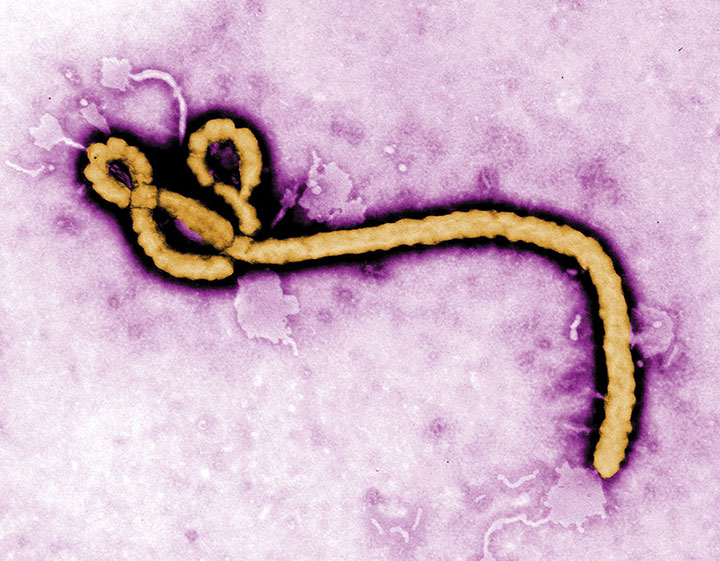Ebola Abridged: New Technology May Restrain Outbreaks of Infectious Diseases

From what scientists know about the highly infectious virus, which typically kills half of the people it infects, it will be back. Electrical engineering professor Stephen Chou, the Joseph C. Elgin Professor of Engineering, is among the scientists working to ensure that the next outbreak is met with better tools.
It’s crucial to detect Ebola that appears in very small quantities soon after infection, before it triggers inflammation throughout the body and overwhelms multiple systems. “By the time Ebola is highly concentrated in the blood, the person is close to dying,” says Chou.
Laboratory testing can detect small amounts of virus in blood, but requires expensive biosafety equipment and trained staff, and just getting samples to those labs can take days in places like West Africa. So Chou’s challenge is to develop a test that’s not only sensitive, but also cheap and easy to use in the field.
Chou, working with the Food and Drug Administration and the U.S. Army Medical Research Institute of Infectious Diseases, is devising a test using technology he developed at Princeton called the M-Plate. The M-Plate, made of a thin layer of gold embedded with glass pillars, amplifies the “signal” of tiny amounts of a virus in bodily fluids, so Ebola and other viruses can be detected even at very low levels. The device, which is smaller than a camera’s data card, can be used in the field, which could greatly expedite diagnosis and help contain an outbreak.
Chou and his colleagues, including associate research scholar Liangcheng Zhou, are working to speed up the testing time to within five minutes. The team also is working on technology that allows a smartphone to interpret the test.
Chou says he hopes the device will be tested in the field within a year. And the M-Plates, he says, could be deployed against a range of other diseases — maybe even the next deadly virus to show up in the world.












No responses yet